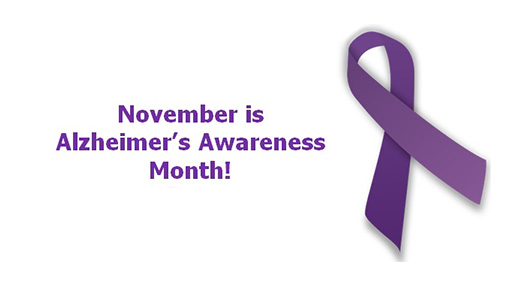What is Alzheimer’s Disease?
Alzheimer’s Disease is a type of dementia that affects memory, thinking, and behavior. Alzheimer’s accounts for 60-80% of dementia cases.
The greatest risk factor is increasing age, and most people with Alzheimer’s Disease are 65 and older. However, Alzheimer’s Disease is NOT a normal part of aging. Alzheimer’s Disease can start affecting people under the age of 65 too, called Early-Onset Alzheimer’s Disease.
Alzheimer’s Disease progressively worsens overtime, while dementia gets worse after a certain number of years. In the first stages, memory loss is mild, but the late stages can have patients lose the ability to carry on conversations and respond to their environment. Alzheimer’s Disease is the sixth leading cause of death in the United States. On average, a person with Alzheimer’s Disease lives 4-8 years after diagnosis, but can live up to 20 years, depending on the factors.
Alzheimer’s Disease has no cure, but there are several prescription drugs available to help manage the symptoms. There is only one treatment that addresses the underlying biology of the disease, called Aducanumab (Aduhelm). This is the first drug to prove that removing the amyloid (a protein that can build up in the brain and may cause Alzheimer’s) from the brain is likely to reduce cognitive and functional decline in people living with Alzheimer’s.
Symptoms:
The most common early symptom is difficulty remembering newly learned information. Alzheimer’s Disease advances through the brain and creates severe symptoms including:
- Disorientation
- Mood and/or behavior changes
- Deepening confusion about the time, place, and events
- Unfounded suspicions about family, friends, and caregivers
- More serious memory loss and behavior changes
- Difficulty speaking, swallowing, and/or walking
The Brain’s Influence on Alzheimer’s Disease:
The brain has 100 billion neurons. Each neuron connects with others to form networks. Groups of neurons have special jobs, such as thinking, learning, and remembering and controlling our senses. To do their jobs, all the brain cells run like a factory. They receive information, generate energy, remove waste, store information, and communicate with other cells.
Scientists believe that Alzheimer’s Disease prevents parts of a cell’s factory from running properly. As the damage spreads, cells lose their jobs and eventually die, causing irreversible changes in the brain.
10 Early Signs of Alzheimer’s Disease:
- Memory loss that disrupts daily life
- Changes in planning or solving problems
- Difficulty completing familiar tasks
- Confusion with places or time
- Trouble understanding visual images and spatial relationships
- Recent problems with words in speaking or writing
- Misplacing things and losing the ability to repeat steps
- Decreased or poor judgment
- Withdrawal from work or social activities
- Changes in mood and personality
“What should I do if I notice any of these signs?”-
If you notice any of these signs in yourself or someone you know, DON’T IGNORE THEM. Schedule an appointment with a doctor immediately.
With early detection, you can explore treatments that may supply relief to symptoms and help you keep a level of independence longer, as well as increase your chance of taking part in clinical drug trials that help advance research.
Alzheimer’s Association 24/7 Helpline: 800-272-3900
For more information about Alzheimer’s Disease, the Alzheimer’s Association, or any other concerns about Alzheimer’s Disease treatment and awareness, visit www.alz.org.


 by
by 
